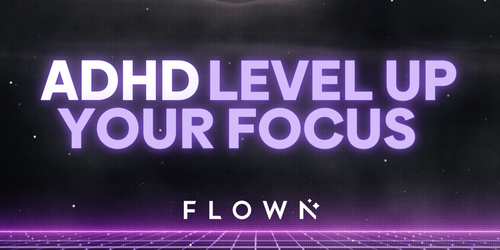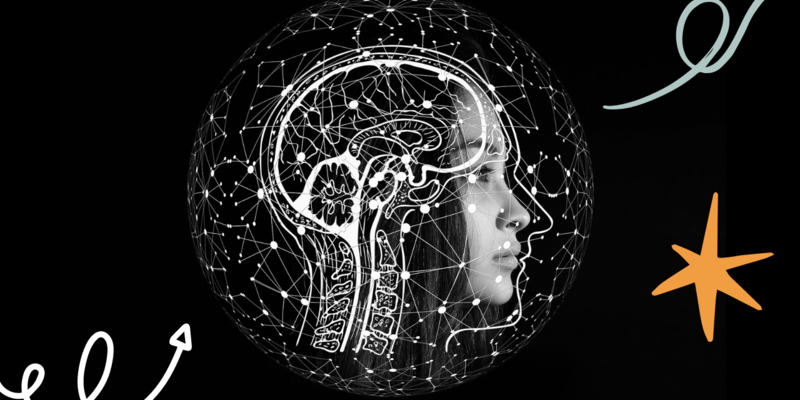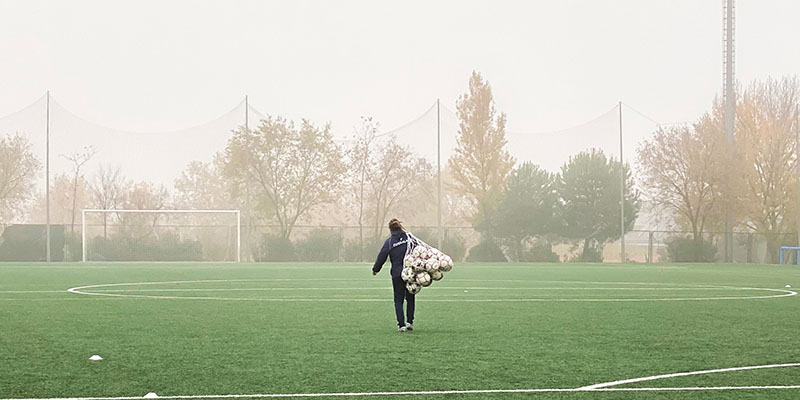12 activities for ADHD adults to find focus and manage boredom

Some people with ADHD struggle to find focus and concentrate, and are easily bored. Here are some activities that can help…

By Eleanor Hope-Jones
•
Oct 10, 2022
Struggling to stay focused or beat boredom with ADHD? You’re not alone! We’ve rounded up 12 science-backed ADHD-friendly activities for adults to help you sharpen your focus, manage boredom, and build better habits. From fun techniques like body doubling and creative play to expert-approved focus hacks, there’s something here to keep your brain engaged and on track.
Having a set of ADHD activities in your back pocket is a great way to improve your brain’s ability to switch into the right mode at any given time. Especially if you’re trying to discover new ways to manage your ADHD in your workplace.
We’ve broken down these activities into ones that will help you:
Train your attention
Surf your boredom
Calm your nervous system
So feel free skip down to the type of activity you need in this moment, and remember there’s no one size fits all.
Everyone experiences ADHD differently so take what works for you, and leave the rest.
How to train your ADHD brain for better focus
When it comes to ADHD, finding focus can feel elusive as your attention span isn’t always interested in what’s on your to do list.
These activities can help your brain learn to ignore distractions and stay focused by building new skills and flooding your system with useful hormones.
1. Give your mind time to wander
It sounds counterintuitive, but finding time to daydream is an important way to allow your brain a rest from constant focus and instruction.
Planning structured pockets of time where you give in to your ADHD brain’s urge to jump from topic to topic can be a huge brain boost. Especially if you need to focus for long periods later in the day.
In fact, scientific research has shown that people who take the time to daydream about their goals are more likely to achieve them, and daydreaming can also help to harness a strength of the ADHD brain by aiding divergent thinking.
Timeboxing is a great way to structure your time for doing this.
How to timebox your distractions
- Using a timer, set aside 40-50 minutes to think about a topic you're curious about. Be ready to allow your thoughts to roam - YouTube rabbit holes, daydreams, niche books, blogs, whatever.
- When your timer chimes, set a further 5 minutes to note down your favourite discoveries or observations, regardless of whether you stayed on topic or roamed onto another.
- Using alarms to set aside boundaried time this way will allow you to indulge your ADHD brain's need for novelty, without spiralling into extended bouts of hyperfocus.
- Taking brief notes can help to lend a sense of permanence to the experience in your brain, enhancing the positive effects.
2. Try a body doubling session
Body doubling is simply the experience of doing your work in the presence of others. It's a practice that helps to anchor your attention by triggering mirror neurons in your brain.
Observing others do something can encourage your own brain to follow suit, the same way you yawn if you see someone else yawn. In a similar way, working alongside others creates an attention anchor that repeatedly reminds your brain to stay on track.
Although you can experience these benefits by working with a friend or colleague physically present, many experience added benefits to focus through virtual body doubling, where you join a video call and work alongside others on screen.
3. Make time for play and creativity
Being drawn to novelty and creative activities is common among those with ADHD; which makes making time for play and creativity vital.
When you have ADHD, your brain is at a dopamine deficit. Although dopamine is associated with fun and rewarding experiences, this neurotransmitter is also vital for regulating the brain's ability to concentrate.
Not having enough in your nervous system can make it especially challenging when you have ADHD to focus on important tasks when you want to.
Setting aside time for ADHD creative activities or creative play can help to top up your dopamine levels and prime your ability to focus more easily when you need to - it's like fuel for the ADHD brain.
Although many are used to thinking of play as frivolous and optional, regularly making time creative play as an ADHD adult can be vital, and can make hunkering down to more monotonous tasks far easier.
How to schedule your play
- Using a timer, set aside 5 minutes to list your favourite playful or creative activities - hobbies, games, crafts etc.
- Afterwards, schedule a minimum of 60 minutes into your week that will be dedicated to one of the activities you've listed.
4. Schedule regular moderate physical exercise
Moving your body releases dopamine, norepinephrine, and serotonin into your nervous system, which have effects similar to some ADHD medications.
These hormones influence focus and attention, and even a short exercise session can boost your motivation, brainpower, and energy.
By engaging in moderate aerobic exercise 3 to 4 times a week, you’ll regularly fuel your brain with focus-enhancing hormones that the ADHD brain often lacks. Incorporating movement breaks into your workday, like those found in FLOWN’s recharge sessions, can help maintain your productivity while supporting your overall well-being.
5. Practice attentive listening
Studies have shown that listening can be tricky for the ADHD brain.
An ADHD brain often works faster than the conversation and is overloaded by all the other visual and auditory information in the environment.
Attentive listening is a way to try and manage that, by consciously focusing on what the other person is saying with the intent to understand, rather than respond. While listening, try asking clarifying questions or paraphrasing what the person is saying back to them so you stay engaged.
Doing this can be like a gym workout for the brain, and helps to strengthen the ability to focus through a neurophysiological process called myelination.
Over time attentive listening, and focusing in general, will become easier.
Managing ADHD boredom with engaging activities
If you have ADHD your brain often has lower levels of a chemical messenger called dopamine that helps you to feel rewarded and regulate focus. Boredom is often the result, so we’ve collected together some top tips for managing boredom as an ADHD adult.
6. Human contact
Spending time with people you like, or meeting new people if you’re an extrovert, can be really helpful in busting boredom. Studies show that frequent micro-social interactions, like smiling at someone on the street or being friendly with the shop owner you buy coffee from, can have a positive effect on your mental health.
We’re hardwired to be social animals, and often get the most satisfaction from spending time with each other.
If you often find yourself bored at work try scheduling time to have a coffee with someone you’ve not met before from your company, or adding an icebreaker question into meetings that’ll help you get to know your colleagues.
7. Audiobooks and podcasts
Lots of people with ADHD love books for all the juicy new ideas, fascinating information and engaging stories they are fully entertained by reading. But for some people with ADHD the focus, time and energy reading requires takes a real toll on their ADHD brain.
Enter audiobooks, and their cousin podcasts.
A way to overcome boredom and experience the joy and excitement storytelling can give us, without using up too much focus and energy.
A bonus is you can go for a walk or do household chores while listening!
Get ADHD help for free

8. Fun kinds of movement
We’ve already referenced aerobic exercise as an excellent way of promoting focus, but fun kinds of exercise like Zumba, martial arts, and surfing are all excellent ways of staving off boredom and getting your heart rate going.
This kind of activity is also going to reduce screen time, stress and offer a bit of a challenge which is a fantastic kind of entertainment for the ADHD brain.
9. If you have just a few minutes: Puzzles and brain games
From crossword puzzles to sudoku you can refresh your brain in just a few minutes with these, especially if you feel depleted by a particularly boring and monotonous task.
Brain exercises can stimulate and excite our brains from the challenge, whilst simultaneously building up our focus and endurance skills.
This is useful if your ADHD means your struggle with procrastination.
Calming techniques for ADHD adults
ADHD means you tend to experience life more intensely than others and notice the sounds, sights and stimulations around you more than others. This can be overwhelming to say the least, so try thinking about your go to tactic when the world gets a bit much.
10. Use meditation to improve ADHD focus
Everyone can benefit from meditation as it grows the brain’s prefrontal cortex, but if you have attention deficit hyperactivity disorder you may find it even more useful than most.
The prefrontal cortex improves the brain’s ability to focus, control impulses and plan for the future. Which is often a real struggle for people with ADHD.
We recommend trying FLOWN’s breathwork taster session, as entirely still and silent meditation can also be off putting for someone with ADHD.
And watch as your ability to be mindful and pay attention to your body grows over time.
11. Spending time in nature
We all know that going out into nature is beneficial for everyone’s mental and physical health, but did you know about the specific effect it has on the ADHD brain?
In a nationwide survey run by Professors from the University of Illinois they found that children with ADHD who took part in outdoor activities appeared to reduce their ADHD symptoms.
This included new outdoor spaces, like visiting a forest, and familiar outdoor spaces like spending time in your garden.
Further studies by Rachel Kaplan, PhD, and Stephen Kaplan, PhD found that even having a desk facing a natural environment, or any kind of area of natural fascination can help improve mood and focus. As the wonder of nature lets your directed attention rest and your automatic attention take over.
12. If you have just a few minutes put down your phone
Phones and electronic devices can trigger overwhelm or sensory overload.
Though not everyone with ADHD will experience sensory overload, it is a common symptom of ADHD.
It’s easy to become overwhelmed by the physical stimulus of the phone’s sounds, vibration and colors, and the mental stimulus like lots of emails, notifications or endless information on social media.
So if you’re feeling overwhelmed or want to find a calm space see if you can put your phone down for at least a few minutes.
And breathe.
Discover how Amanda focuses with ADHD
My story: how I achieve flow state and beat burnout with online body doubling

Everyone’s ADHD journey is unique
Managing ADHD is a personal journey, but the right focus techniques can help. Try out these ADHD-friendly activities and explore the science-backed productivity tools at FLOWN designed to support your unique working style.
Remember these are just some of our favorite activities to help soothe an ADHD mind, and we hope you found one that works for you. Learning to manage your ADHD symptoms and finding activities that will work for you is a lifelong journey that will take time and getting to deeply know yourself.
If you need more support and strategies to coping with your ADHD in the workplace, or just overcoming procrastination read check our our guides.
















